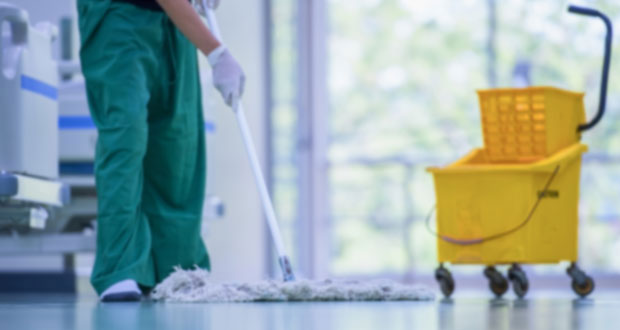On September 6th, the All-Party Parliamentary Group (APPG) for the Cleaning and Hygiene Industry will commence the much-needed review, entitled ‘Embedding Effective Hygiene for a Resilient UK’, with the aim of producing a report with policy recommendations which will feed into the national UK Covid-19 Inquiry.
The APPG, which comprises 53 MPs and two Members of the House of Lords, is being supported by the industry body for the entire sector and APPG secretariat, the British Cleaning Council (BCC) and the Royal Society for Public Health (RSPH).
The inquiry will examine what was successful and what was not from the national approach to cleaning and hygiene during the pandemic to ensure lessons can be learnt. These will be taken forward to increase disease resilience to current common infections and help inform the UK’s response to any similar future public health emergency.
Findings will be detailed in a report published to the public, as well as being shared with the UK Covid-19 Inquiry.
The three sessions will take evidence from public health experts and many industry firms and associations. The report is expected to be followed by a roundtable event within the industry which will consider how to take forward the findings.
- September 6: A public health expert in hygiene promotion and a Director of Public Health who has led on the local implementation of public health measures
- September 13: Contractors who delivered cleaning services at the time, alongside suppliers and manufacturers of cleaning and hygiene products which were very much in demand during the pandemic
- September 20: Owners and landlords of a variety of buildings who had to deliver high standards of cleaning and hygiene during the pandemic, in order to protect the public.
APPG Chairman Nigel Mills, MP, said: “We would all like to believe that Covid has gone away and there’s no risk left but that’s not the case.
“None of us want to see any restrictions return, so it is key going forward to put in place measures that can improve hygiene levels, slow down the spread of infectious diseases while letting us get on with our normal lives.
“The aim of this enquiry is to look at what those sensible measures could be, who should implement them and what, if any, regulatory changes are required.”
BCC Chairman Jim Melvin said: “During the Covid-19 pandemic, by definition there was a national focus on cleaning and hygiene and its essential role keeping key workers and the public healthy, safe and well.
“The industry and its professional, skilled staff played a vital and frontline role in helping fight Covid-19 that should have been recognised by Government.
“Nevertheless, nationwide there were a great number of issues that hampered the UK’s response to the pandemic, ranging from the shortage of resource to the lack of supplies in materials and PPE which resulted in a variety of concerns amongst which were pop-up suppliers offering the public unquantifiable cleaning and hygiene products.
“Going forward, the nation cannot lose its focus on hygienic cleanliness and the importance of the industry – which is one of the ten biggest in the UK – simply has to be recognised.
“The UK has to learn the lessons of the past two or three years and change our national culture to embrace hygiene in a manner that ensures high standards, along with correct procedures and techniques, are understood and adopted throughout.
“Hygiene has to be embedded as a top priority for this country in the future and cleaning technicians must be recognised as being skilled professionals performing an essential role that is critical to public health and wellbeing.
“In this way the UK will be better prepared for when a new variant or new pandemic inevitably occurs.
“The expert advice and opinions of the cleaning and hygiene industry, alongside our very valued colleagues in the supply chain and the Royal Society for Public Health, delivered via this inquiry, will be hugely important to helping the UK and the Government develop a proactive and effective plan for the future and in doing so give the public a hygienic confidence.”
Dr Jyotsna Vohra, Director of Policy and Public Affairs at the RSPH added: “The Covid-19 pandemic taught us all that good hygiene is crucial for public health, however the public health workforce, including the cleaning and hygiene industry, experienced challenges in making better public hygiene a reality.
“As we continue to live with Covid-19, we must bring sectors together to reflect on these issues, and better understand how we can collectively embed best practice going forwards to not only protect the public from future outbreaks but to also support population resilience to current and common diseases.”
While some personnel are finally returning to the office – the great majority of organisations (up to 83 per cent) anticipate a hybrid mix of on-premises and working from home to continue for the foreseeable future.
This means that when it comes to providing access to the workplace, where once it was simply enough to maintain a welcoming reception for visitors, organisations today must also keep a close eye on access permissions in real-time to keep buildings safe and secure while ensuring they comply with compliance.
Pitney Bowes Smart Access Management in association with FMJ has produced a new White Paper which explains how to create a welcoming, actively managed environment for authorised people.
It explains how new Smart Access Management™ (SAM) delivers a complete, real-time and data-driven view of all your people, visitors and contractors, to help give you greater control and visibility.
To download the white paper click here.





